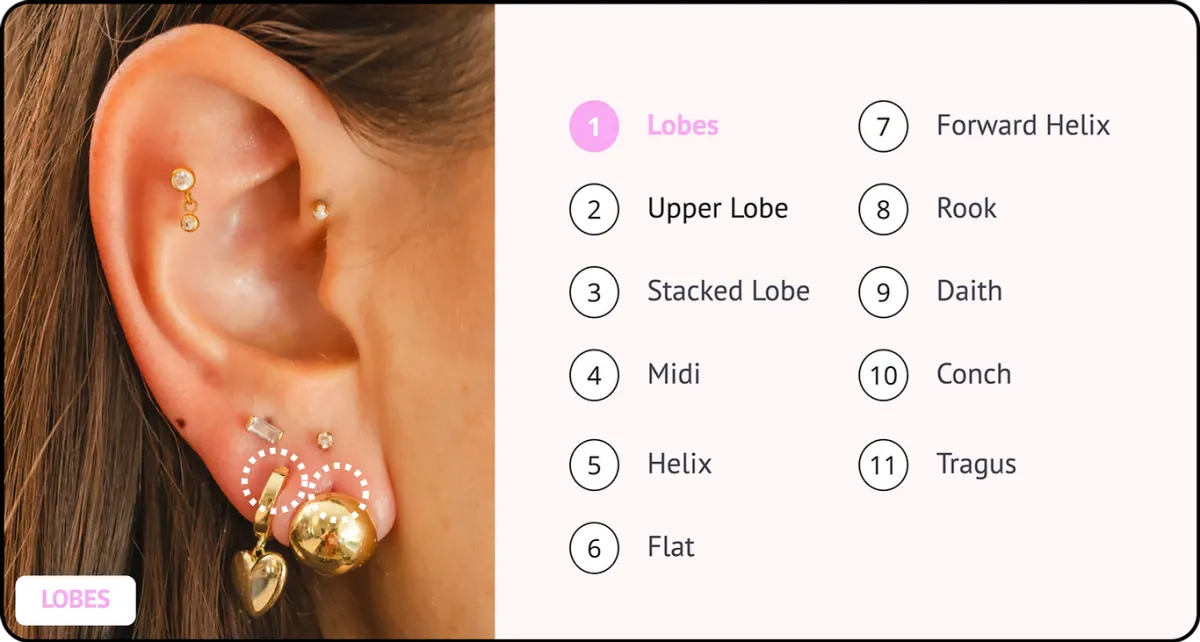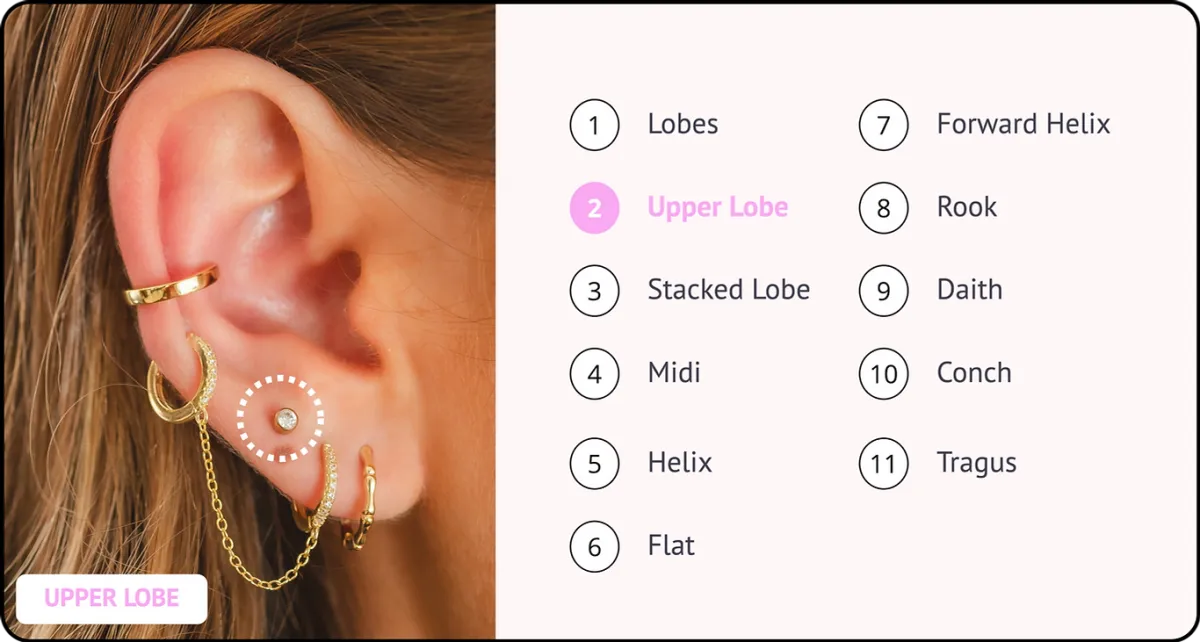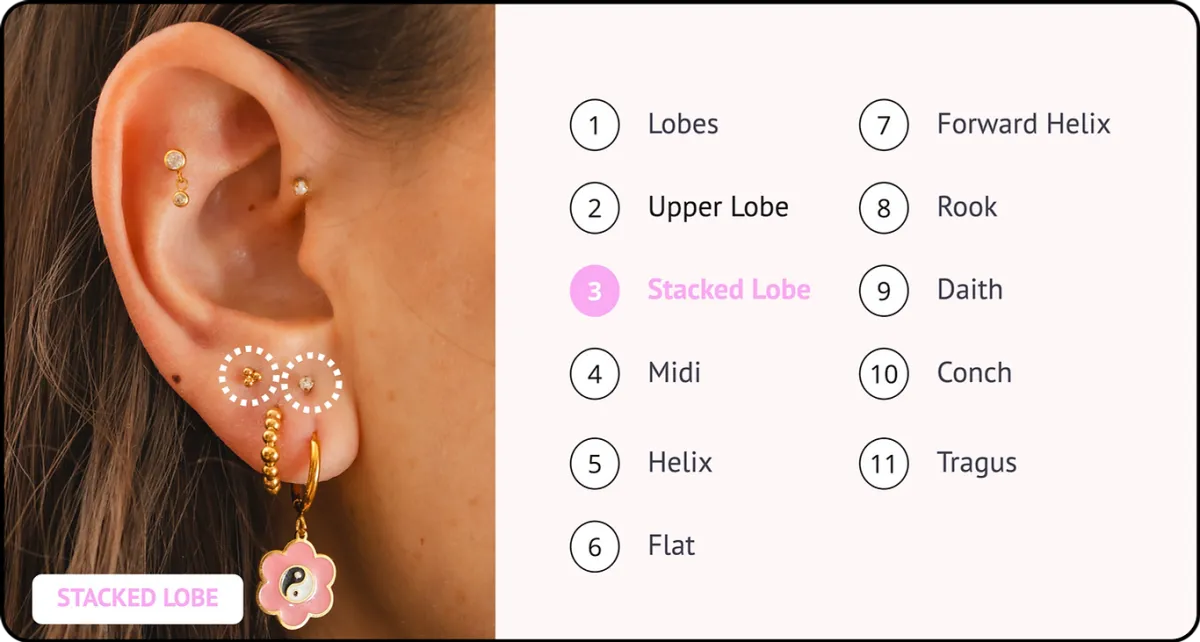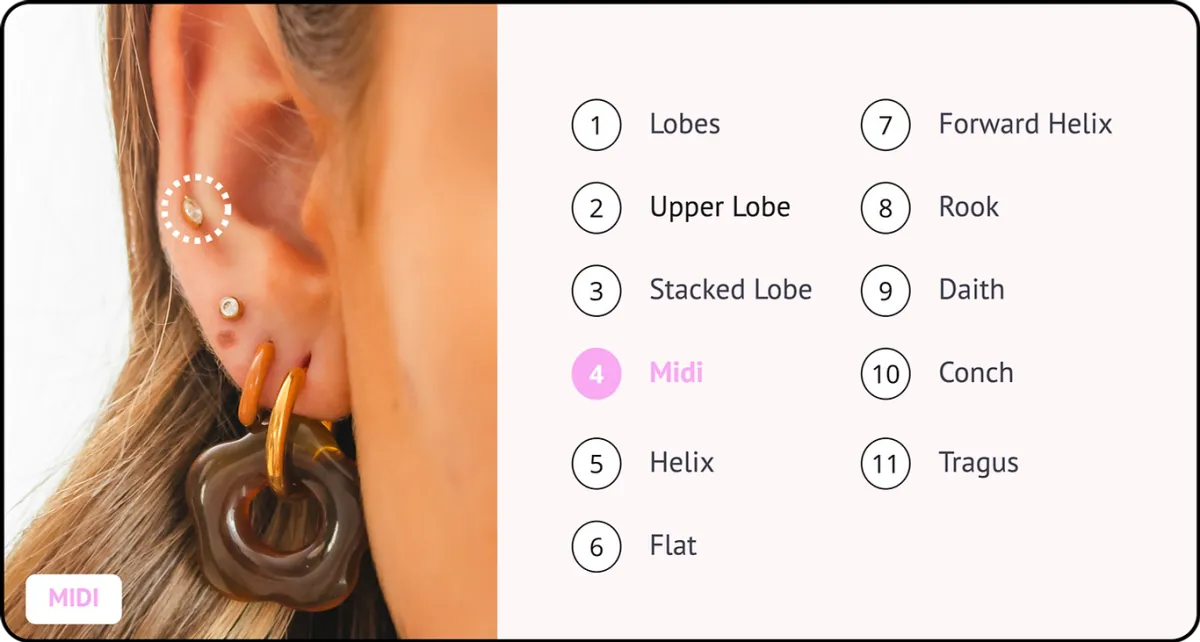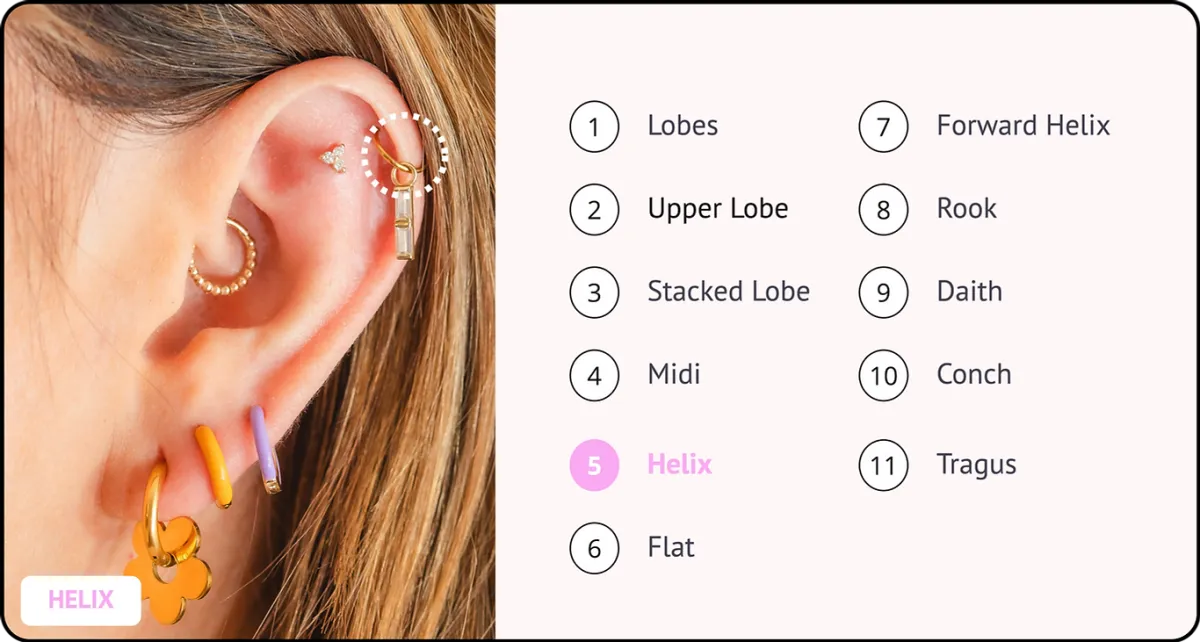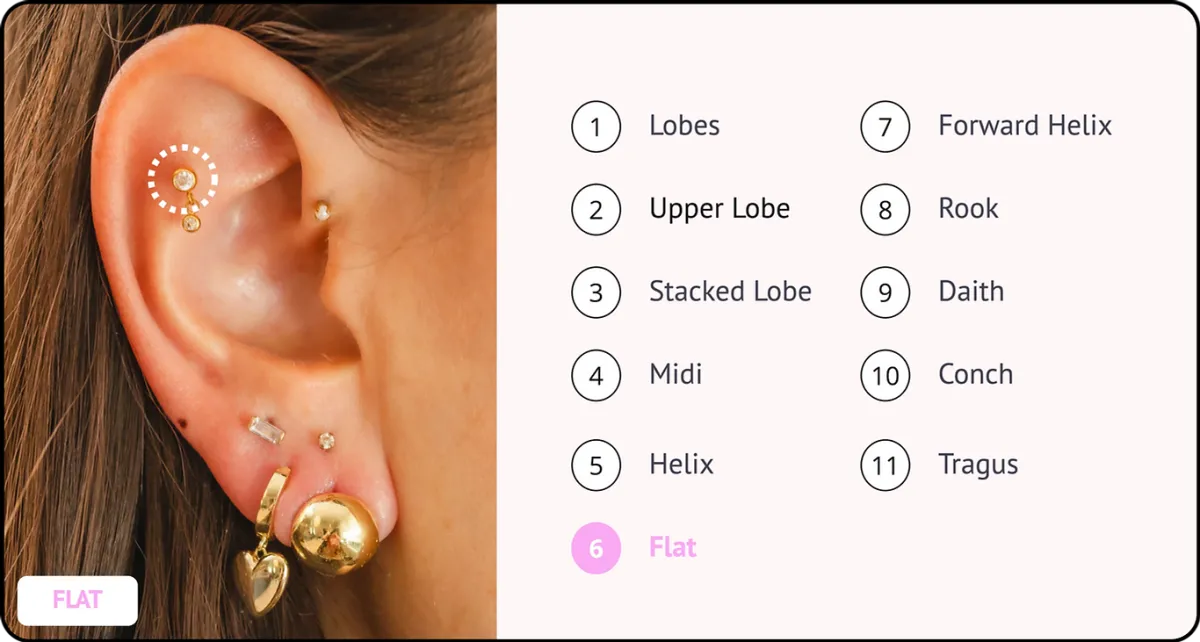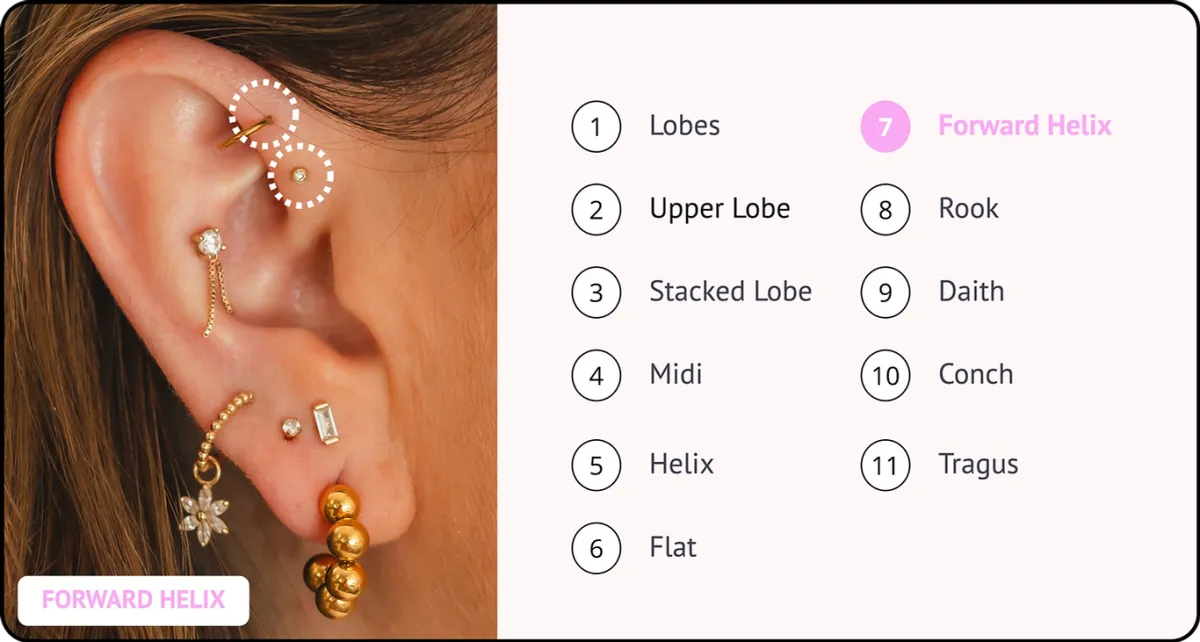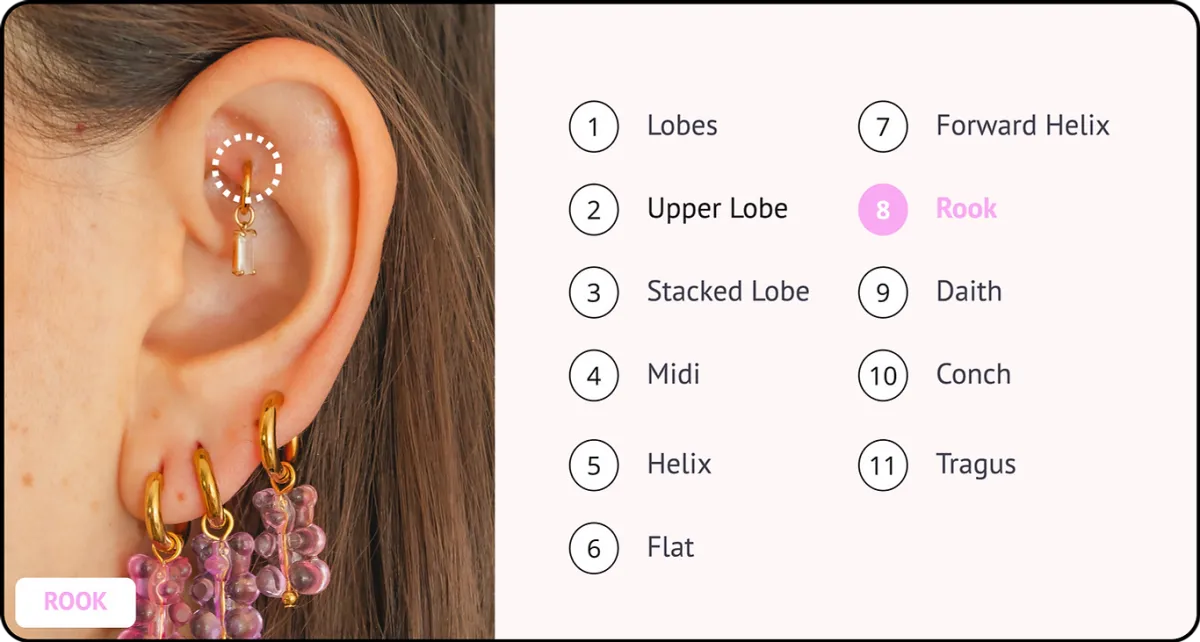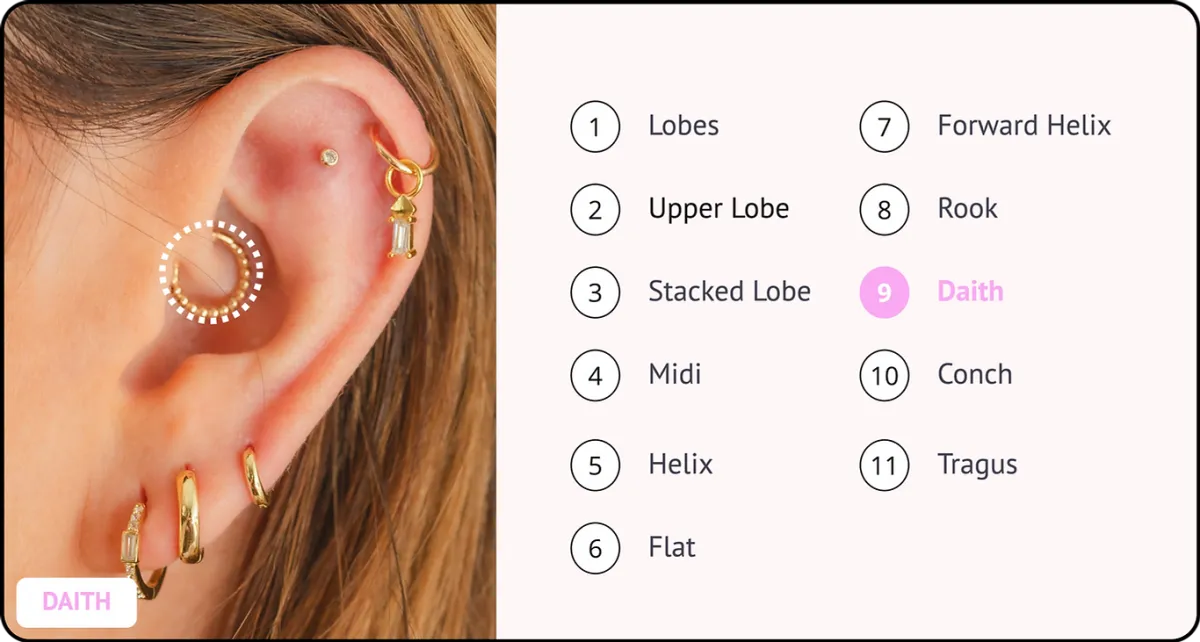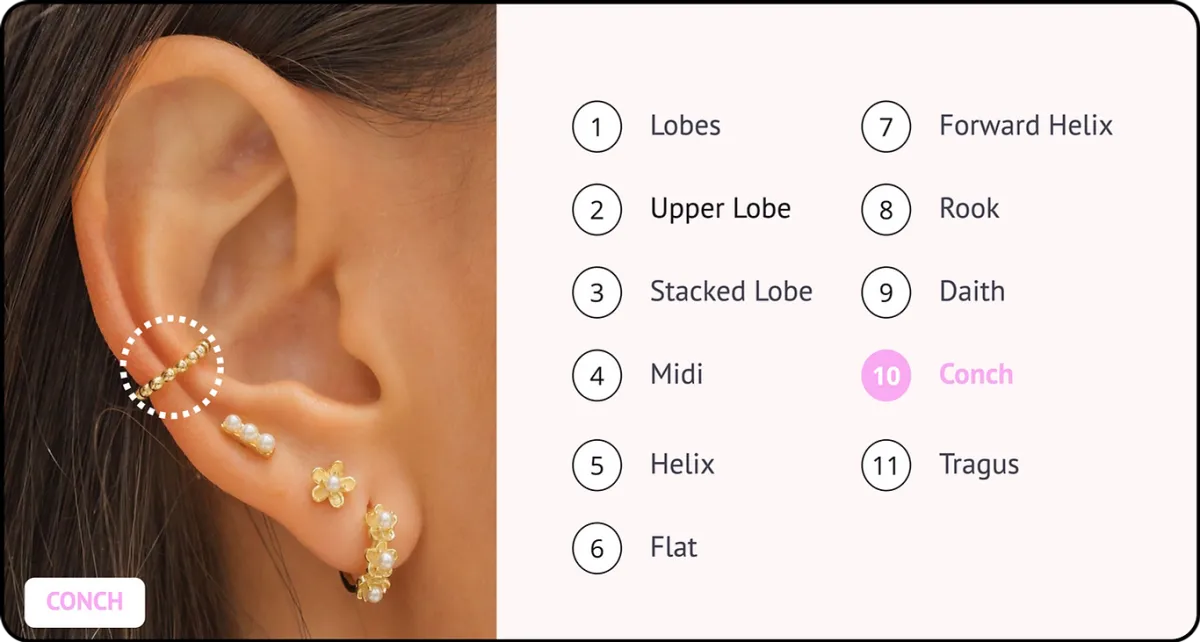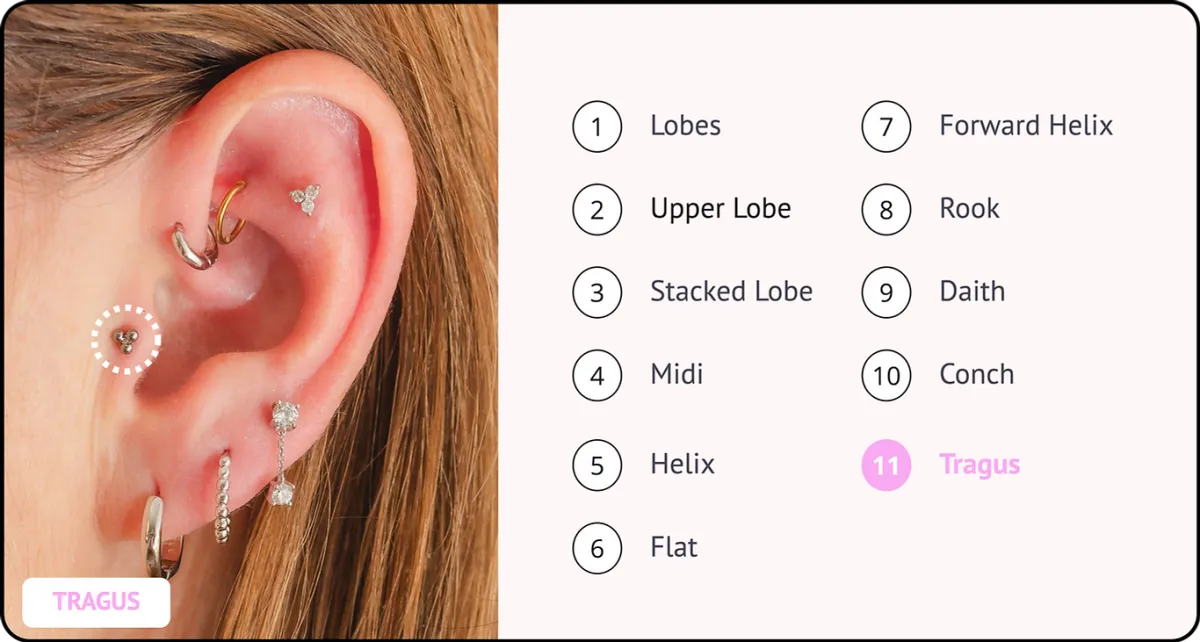FREE SHIPPING on U.S. orders over $75
Groovy FAQ
Common Questions
What types of piercings do you offer?
At Groovy Peach, we offer the following types of piercings:
Ear Piercings:
Lobe
Midi
Conch
Helix
Flat
Tragus
Forward
Helix
Rook
Daith
Facial Piercings:
Nostril
Body Piercings:
Navel
Each piercing is performed with precision and care by our experienced piercers.
Do you offer piercing consultations?
Please text or call us to let us know what you want done and we can further help you there!
South Jordan: (801) 810-0531
Bountiful: (801) 624-6393
Orem: (801) 251-6613
What forms of payment do you accept?
We accept cash, credit/debit cards, and gift cards which can be purchased through our scheduling link under “Purchase a Gift Card”
Do you offer any discounts or promotions?
We occasionally run promotions and offer discounts. Check our website or follow us on social media for promotions.
How can I contact you if I have questions or concerns after my piercing?
For any post-piercing inquiries, you can reach us via phone, email, or through our website's contact form. We aim to respond to all queries as quickly as possible.
Do you offer gift cards?
Yes, we offer gift cards that can be purchased in-store or online. They make a great gift for friends and family!
What is your cancellation policy?
Cancellations made less than 10 hours in advance or no-shows will be charged a fee of $40. For more details, please see our Cancellation Policy.
Do you accept walk-ins?
We do accept walk-ins if we can accommodate them and we strongly recommend that you schedule an appointment to ensure availability or call the location you are wanting to visit ahead of time.
What is your pricing?
Basic cartilage piercings (conch, helix, midi, flat) and lobes: $45 per piercing site
Forward Helix/tragus/daith: $55 per piercing site
Nostril and navel: $65 per piercing site
All of our piercings include a basic implant-grade titanium jewelry option in the price. We have a lot of fun options to upgrade starting at $20-$35 for titanium, sold per piece and $65+ for 14k gold, sold per piece.
What is your policy on minors getting pierced
Minors must have a parent or legal guardian present and provide a valid birth certificate for the minor and valid legal identification for the guardian. Cartilage, Nostril & Navel piercings 15+.
Piercing Safety & Guidelines
What to Know Before and After
How long does it take for a piercing to heal?
Typical healing times for different types of piercings and factors that can affect healing.
It's crucial to understand that healing times can vary widely due to factors like genetics, health conditions, and environmental influences. Generally, earlobes typically heal fully within 4-6 months, nostril piercings in 6-8 months, and ear cartilage piercings may take approximately 9-12 months. However, these estimates are influenced by personal aftercare practices and individual physiology.
Additionally, it's important to note that jewelry should not be changed before the healing process is fully completed. Please consult with Groovy Peach before removing your piercing jewelry ahead of the recommended time frame.
Can I get a piercing if I have certain medical conditions?
Information about contraindications and necessary precautions for individuals with specific health issues.
Before considering a piercing at Groovy Peach, it's essential to discuss any medical conditions or concerns with your physician. The decision to proceed with a piercing can be made collaboratively between you and your doctor. As part of our safety protocol, we require all clients to truthfully complete a medical questionnaire during the consent and check-in process. This ensures the safety of both you and our staff. Certain medical conditions may have contraindications or require specific precautions, which our staff will discuss with you based on the information provided in the questionnaire.
What are the risks associated with piercings?
Potential complications and how to minimize them.
Piercings carry the risk of infections. To reduce this risk, it's essential to strictly follow the aftercare instructions provided by your piercer. At Groovy Peach, we prioritize your health by using sterile earrings, equipment, and techniques, ensuring a safe and hygienic start to your healing process.
Can I get pierced while pregnant?
It’s generally advisable to postpone getting pierced during pregnancy. Your body can be more vulnerable to infection and may heal more slowly, which can increase the risk of complications.
That said, if you’re pregnant or breastfeeding and have discussed it with your physician—and feel confident moving forward—we’re happy to pierce you with your doctor’s support. Please consult your physician before booking your appointment.
Is your equipment sterilized?
Absolutely! We follow strict sterilization protocols using high heat/high steam medical grade sterilizers to ensure all equipment is sterile before each use. We also use single-use, disposable needles for every piercing.
Piercing Care & Essentials
How often should I clean my piercings?
Your piercing should be cleaned 2-3x’s daily with sterile saline. Avoid touching your piercing during cleaning.
Can I swim with a new piercing?
Guidelines on swimming and exposure to water during the healing process.
Swimming with a new piercing is generally not recommended during the initial healing period. Here are some important guidelines to consider:
Water, especially in pools, hot tubs, lakes, rivers, and oceans, contains bacteria and other microbes that can increase the risk of infection in a healing piercing. Chlorine in pools and chemicals in hot tubs can also irritate the piercing.
Keep it Dry: Moisture can prolong the healing process and increase the risk of complications. Always dry your piercing carefully after showering or washing your face to prevent irritation and infection.
Are there any activities I should avoid after getting a piercing?
After getting a piercing, it's important to follow these guidelines for optimal healing:
Refrain from swimming in pools, hot tubs, lakes, or other bodies of water.
Avoid touching or twisting the jewelry, and refrain from activities that might apply pressure to the piercing site.
Do not use alcohol, peroxide, or oils/creams on the piercing.
After working out, clean your piercing to remove any excess oils or dirt.
These steps will help ensure your piercing heals properly.
How do I know if my piercing is infected?
Symptoms of an infected piercing and steps to take if you suspect an infection.
Signs of infection in a piercing include increased redness, swelling, pain, warmth, or discharge with an unusual color or odor. If you notice any of these symptoms, please contact Groovy Peach and a physician promptly.
It's important to note that piercings, especially cartilage piercings, can go through various stages during the healing process. Some tenderness, swelling, minor bleeding or bruising, and soreness are considered normal. These symptoms often occur in the initial days or weeks after getting pierced and typically subside as healing progresses.a
What should I do if my piercing is swollen or irritated?
Tips for reducing swelling and irritation, and when to seek professional help.
It's important to note that piercings, especially cartilage piercings, can go through various stages during the healing process. Some tenderness, swelling, minor bleeding or bruising, and soreness are considered normal. These symptoms often occur in the initial days or weeks after getting pierced and typically subside as healing progresses.
Continue cleaning 2-3 times per day (Please use a sterile saline!), and take ibuprofen temporarily to help reduce inflammation.
If the swelling, redness, or irritation worsens or persists beyond the initial healing phase, or if you notice discharge that is yellow or green in color, it's advisable to seek professional help. These could be signs of infection or other complications that require medical attention.
Remember, patience is key during the healing process. Most swelling and irritation should gradually improve as your piercing heals.
What should I do if my piercing jewelry is too tight or too loose?
If your jewelry feels too tight or too loose, it's best to visit us for a professional adjustment. Avoid trying to adjust it yourself, as this can cause irritation or damage to the piercing. Schedule a “piercing checkup” appointment.
Jewelry Essentials
Choosing, Handling, and Replacing Your Piercing Pieces
What types of jewelry are best for new piercings?
Recommendations for materials and styles that are safe and comfortable for initial piercings.
We exclusively use implant-grade titanium or solid 14k gold for our piercings, and all our jewelry features a pushpin flatback design, prioritizing safety and comfort. Please note that we do not perform piercings using outside jewelry brought into Groovy Peach.
How does the jewelry work?
Flatback jewelry with a push-in design works by using a friction fit system.
Here's how it operates:
1. Post and Top: The jewelry consists of two parts: the post (the part that goes through the piercing) and the decorative top (the part that sits on the 1. surface of the skin).
2. Push-In Mechanism: Instead of screwing the top onto the post, you simply push it in. The post typically has a small, slightly flexible notch that grips onto the decorative top.
3. Secure Fit: When you push the top into the post, the pin on the decorative piece should be slightly curved to secure the top firmly in place. This ensures the jewelry stays put without the need for threads.
4. Removal: To remove or change the top, you pull it out.
This push-in style is popular for its simplicity, comfort, and ease of use compared to threaded jewelry.
Can I bring my own jewelry for the piercing?
To ensure the health and safety of our clients, we exclusively use our own high-quality jewelry made from implant-grade titanium or 14k gold for all piercings.
What happens if I lose my jewelry?
Once you leave the studio, your jewelry is your responsibility. We fit it as snugly as possible during your appointment, but with time (and regular cleaning), it can loosen. To help prevent loss, we recommend washing your hands and checking the fit of your jewelry once a week.
That said—life happens! While we don’t typically replace lost jewelry, we do take things case by case and may be able to help in special situations.








